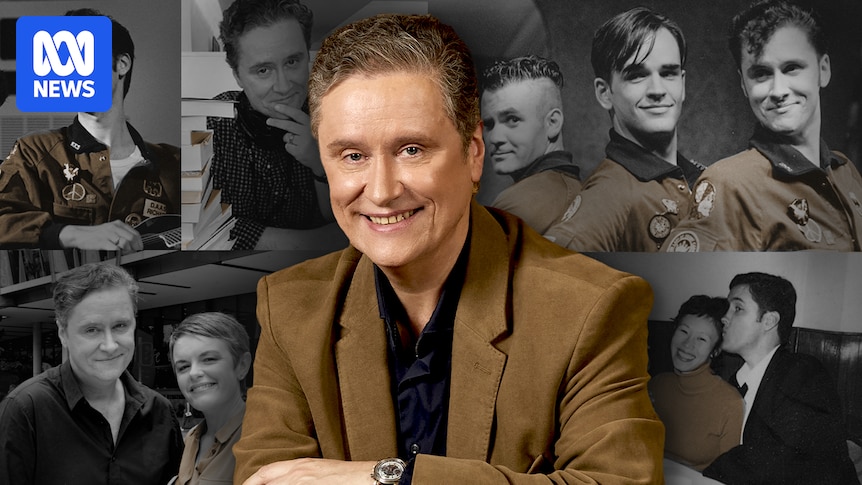
Before becoming one of Australia’s most cherished interviewers, Richard Fidler was a curious child with an insatiable appetite for understanding the forces that shape history and humanity. This self-proclaimed “nerdy curiosity” has become a hallmark of Fidler’s four-decade-long career, evolving from his days as a satirical performer to his role as a broadcaster.
“As a kid, I always wanted to know how my tiny speck of a life fitted into the great stream of events and people,” Fidler reflected. “I’ve been working on that ever since, really.”
Raised in a nurturing home, Fidler vividly recalls the wall of books that filled their living room, sparking his early fascination with knowledge. “I always imagined when I was old enough to read those books, I’d be able to figure out the secrets of life, the universe, and everything,” he said.
From Busker to Broadcaster
Long before he met his wife Khym, Fidler discovered a love of music and street performing while studying history and politics at university in the 1980s. It was during this time in Canberra that he met Tim Ferguson and Paul McDermott, forming the Doug Anthony Allstars.
“We formed a busking group and started pulling huge crowds of bored public servants milling around Civic on Saturday mornings,” Fidler recalled. The satirical, boundary-pushing musical trio went on to enjoy success in the United Kingdom and Australia.
Despite his comfort on stage, Fidler’s true calling emerged in radio. After parting ways with McDermott and Ferguson, he found his voice in local radio, eventually moving to Queensland to present ABC Brisbane’s Evenings program. This role evolved into hosting the Mornings program, which included a segment called the Conversation Hour.
Building a Broadcasting Legacy
The Conversation Hour segment soon grew into a standalone long-form interview program, ultimately becoming a podcast powerhouse. “I’ve worked with quite a few outstanding producers, but I’d never worked with anyone as brilliant, wise and delightful as Pam,” Fidler said of his collaboration with founding executive producer Pam O’Brien.
From its inception, Fidler envisioned the Conversations listener to be “someone like Khym,” his wife who balanced a career and motherhood. “Radio could be a real comfort for her,” he noted, highlighting the program’s ability to engage listeners with its deep, empathetic storytelling.
A New Voice Joins Conversations
In 2018, the show evolved again with the addition of co-host Sarah Kanowski. “Sarah was a regular listener to the show … when she had young kids,” Fidler explained. Their partnership has been marked by mutual respect and camaraderie. “It’s really great to have her, and she’s fun to be around,” he said.
Together, Fidler and Kanowski have drawn captivating stories from over 3,200 guests. “Our curiosity is the engine of that hour, otherwise, it’s just a bloody long interview,” Fidler emphasized. The show’s success is evident in its 40 million annual podcast downloads and glowing audience feedback.
Curiosity and Compassion in Interviews
While curiosity drives the show, Fidler maintains boundaries, avoiding “trauma mining” in interviews. “I don’t mind making listeners uncomfortable, but I do mind mining that trauma, and tears, for its own sake,” he stated.
As Conversations enters its third decade, Fidler remains committed to his role, despite personal challenges. His wife Khym’s battle with cancer underscored the strength of the Conversations team, who supported Fidler during this difficult time.
Reflecting on his career, Fidler shared, “I think happiness is not a thing that we really search for — happiness is a by-product of a kind of contentment.” His passion for learning and storytelling continues to fuel his work, as he balances broadcasting with writing his own books.
Looking ahead, Fidler plans to research ancient Mesopotamia for a new book, demonstrating his enduring curiosity and dedication to sharing knowledge. “I’ll probably record some Conversations while I’m in the middle of the ruins of the ancient city of Nineveh, ideally, or Nimrud in northern Iraq,” he mused.
Richard Fidler’s journey from comedy rebel to beloved Australian interviewer is a testament to the power of curiosity, empathy, and the enduring impact of storytelling.







